On March 26, 2025, the Kosciuszko Foundation presented a piano recital by Polish pianist Mateusz Mikolajczak. The event was held in the concert hall at their headquarters a block from Central Park.
The concert hall was itself a work of art, its wood-paneled walls covered with fine paintings.
The Steinway grand piano looked like a well-used music academy instrument, but sounded great.
Chopin: Nocturne in C-sharp minor, Op. 27 No. 1
I loved Mr. Mikolajczak’s performance of this, one of my favorite Chopin’s Nocturnes. I caught myself thinking here I am, listening to an accomplished Polish pianist play this riveting work written 189 years ago. Maybe it’s time I made a pilgrimage to Poland.
Liszt: Sonetto 104 del Petrarca from Années de Pèlerinage
I had mixed feelings about Mikolajczak’s Liszt. While the pianist swayed back and forth with the phrasing and made artful gestures with arm and hand, the piano did not convey such emotional weight. I speculate that perhaps body language was at the expense of pianistic expression. Readers might compare Yunchan Lim’s performance.
Chopin: Polonaise-Fantaisie in A-flat major, Op. 61
The Polonaise-Fantaisie can feel a bit rambling. However Mikolajczak’s delivery gave me a new respect for the piece. I became fascinated by how Chopin’s themes and motifs would leave and later return with renewed magic.
Beethoven: Piano Sonata No.23 “Appassionata” Op. 57 
Tantalizing fragments of Beethoven echoed down the stairwell while Mikolajczak was rehearsing.
But nothing could prepare me for sitting in the front row while he performed Beethoven’s Appassionata. He was compelling.
So much vigor and drama, such crisp, virtuosic delivery! We loved it, giving the pianist a standing ovation.
Prokofiev’s Piano Sonata No. 8 in B-flat major, Op. 84
I am amazed that anyone can play this elaborate work from memory. But Mateusz Mikolajczak seemed to thrive on Prokofiev’s unusual tonalities and relentless, driving rhythms. However I noticed toward the end of the last movement that the tips of the pianist’s fingers had become dark pink.
My favorite moments in this work were the tantalizingly evanescent “ocean swell” phrases, when Mikolajczak made us feel like we were on a ship in heaving seas, the pianist rising from his bench to stay in control.
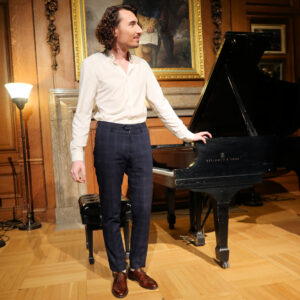 Closing Thoughts
Closing Thoughts
The pianist’s profile and curly hair made me think of European aristocrats from a bygone age. His interactions with his audience were correspondingly gracious, but brief.
Much of the time at the piano, his hair fell over his face. I wanted to know more about who this fascinating pianist was, but he was immersed in his art so that would have to come later.
Mateusz Mikolajczak is a classy performer with immense concentration, impressive technique and a flair for drama. I would be interested to hear his interpretations of Bach/Busoni or Bach/Liszt.
The Kosciuszko Foundation
The membership-supported Foundation promotes educational and cultural exchanges between the United States and Poland. Their premises at 15 East 65th Street provided the perfect venue for this recital.
The Foundation, its people, and the good work that they do thoroughly impress me.
Special thanks to Ewa Zadworna for facilitating my attendance and discreet use of a camera.
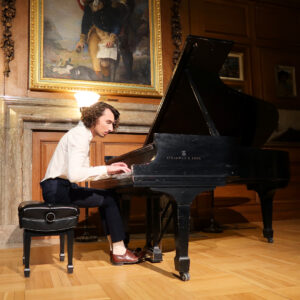

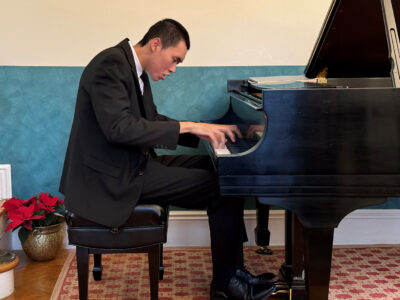
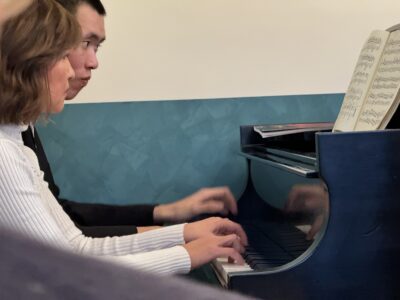
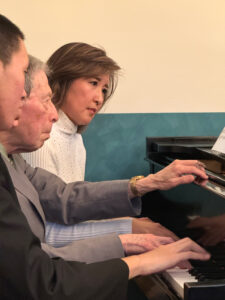
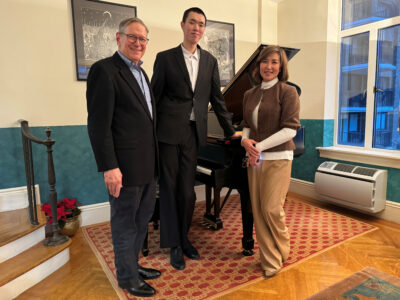
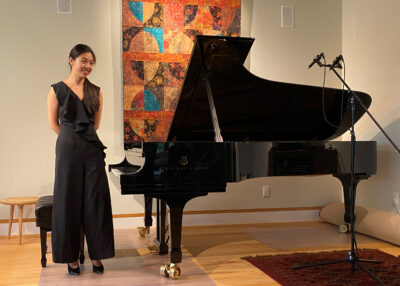
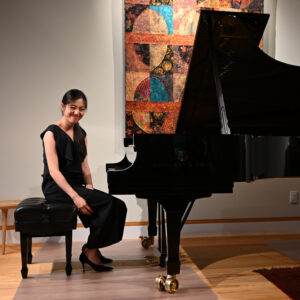
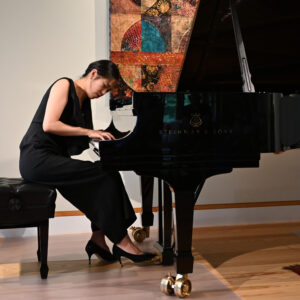

You must be logged in to post a comment.